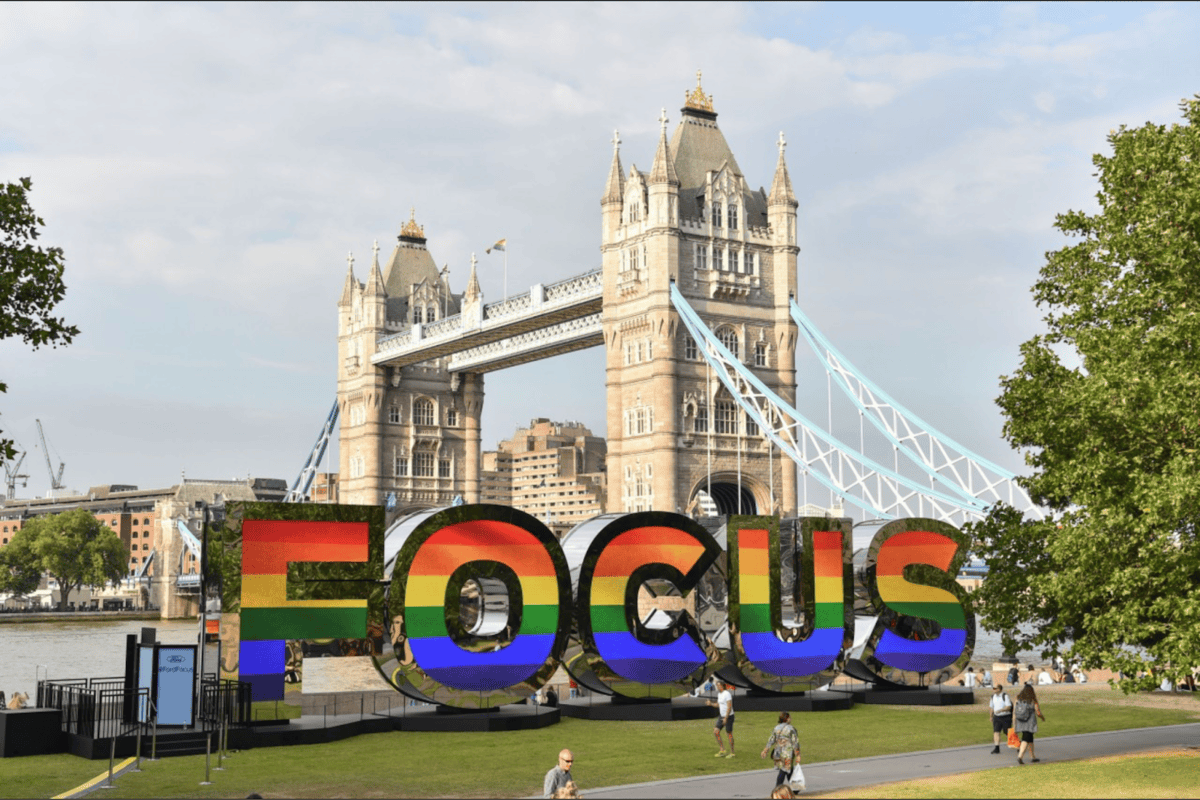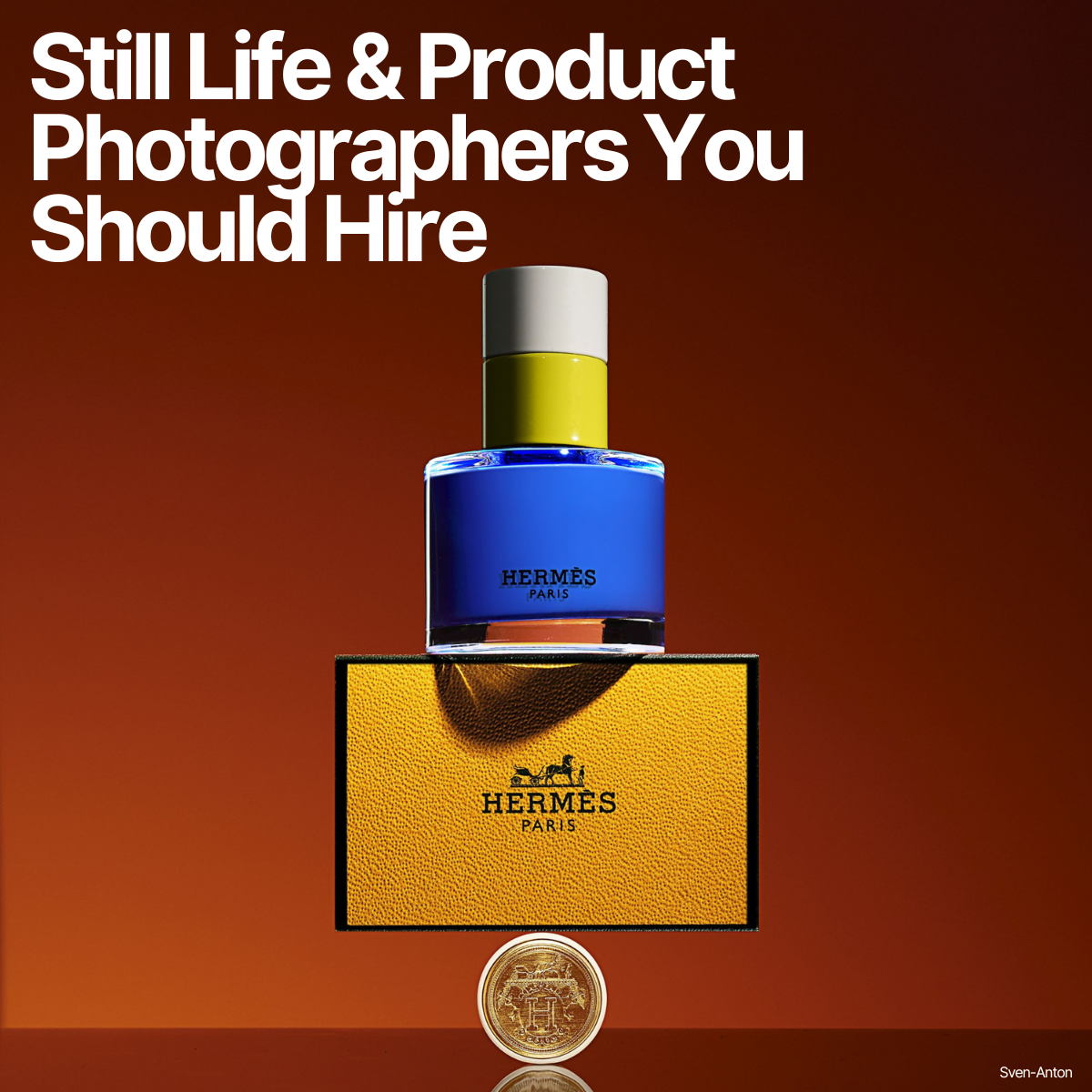From ski guide to seasoned producer, Luke Jackson's journey into the world of production was anything but conventional. What began with a chance opportunity in the Alps quickly evolved into a dynamic career defined by creative risk-taking, logistical mastery, and an enduring passion for making the impossible happen. With a portfolio that spans global brands, viral stunts, and visually stunning campaigns, Luke shares how he’s navigated an ever-changing industry and why staying nimble, collaborative, and curious has been key.
Can you tell us about how you first got started in the production industry? What drew you to this field?
It was by complete chance!
My first job was for an Opel Corsa corporate advert with almost all of the action taking place on skis. Having worked as a ski guide / ski rep in the Alps for several years I was recommended to production for location manager by a friend. I didn’t know much about filming but did know the perfect location and many of the locals really well. Val d’Isere. After our first meeting the producer (Liam Lyons) and production manager (Maeve Quill) took a calculated chance on me.
The shoot really blew me away. The script and locations were fun, involving plenty of skiing; a ski slalom course, mogul field, off piste cliff jump, mountain restaurant, sports facility, and we had an American muscle car with sfx explosions on the piste. The director Toa Stappard was charming, talented, engaging and fluent in French, the crew were lovely, the cast (many locals) wonderful. We used several of my contacts/friends for cast and logistics, and I even featured briefly as the waiter in the restaurant. In hindsight it was a fairly complex shoot, particularly for a first time location manager.
Following this, Maeve kindly introduced me to some of her contacts, including a location agency/library where I honed my skills as a location manager, stills producer and started to grow my contacts and client base.
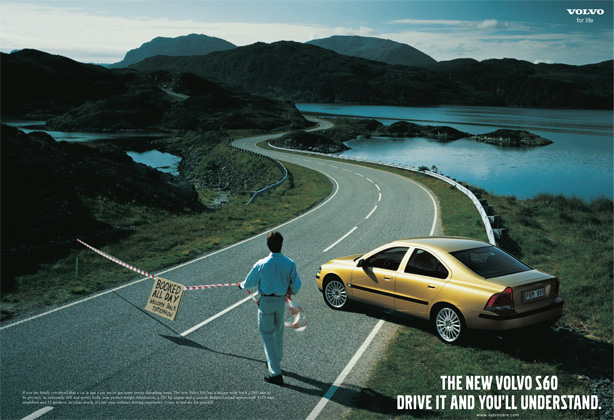
What were some of the biggest challenges you faced early in your career, and how did you overcome them?
Stepping straight into a location management role without any genuine filming training or experience meant I had a lot of ‘unknowns’, so balancing my inexperience and steep learning curve with the role’s responsibility was tough. But I gained experience in the location library, assisted a number of experienced location managers, was curious, worked hard, made a few mistakes and learned quickly. Within about 7 years my resume included location manager credits for numerous stills shoots and commercials, two feature films (one of which was Layer Cake), stills producer, and most importantly developing some loyal clients, many of whom I still work with today.
As someone with extensive experience in the production industry, what do you think are the biggest challenges that production companies face today?
I’ve worked in the advertising sector for almost all of my career, and it’s navigated some monumental changes. But recently there’s been a spectacular cluster; brexit, covid, cost of living crisis, actor and writers strikes, continued rise of cheaper production houses in eastern Europe, social media, streaming, global instability and Trump’s Tariffs. All have had major impacts on our work and if that’s not enough to cope with we have the arrival of AI too!
All these things could/should be discussed individually, but taking them as a whole it’s driven massive change in our sector. Budgets and timeframes continue to reduce, client expectations remain understandably high (eg. social media ‘safe’ formats, now range from 16:9 to 1:1 to 9:16!). Production costs are on the rise (APA/BECTU proposing another UK crew increase in Sept 2025). There seems to be a genuine squeeze on traditional creativity and I do hope we don’t lose some of the ‘craft’ we’ve been so good at for so long. Nevertheless, social media and ad free streaming does mean that smaller crews, influencers, PR stunts and activations seem more relevant now than ever before.
Being able to be small and nimble has allowed me to work around or embrace these challenges, responding quickly to, and focusing on my client’s vision rather than my company bottom line. It has also opened up more opportunities to flex into PR stunts, events and activations, that have been exciting, challenging, unusual and great fun.
Your portfolio showcases a wide range of projects. What do you love most about what you do, and why?
The balance between production, production service and locations is the key for me. Sometimes I love being responsible for the whole, and sometimes it’s great to ‘just’ be a location manager. This variety keeps me humble, on my toes and reminds me of the challenges there are at every level.
I particularly love:
- Scouting in the countryside (beaches, cliff tops, quarries, mountains or roads in Cornwall, Cumbria, Wales or Scotland).
- Working in some incredible locations (the very top of the Seven Bridges, nuclear bunkers at Greenham Common, Concorde’s original fabrication hangars in Bristol, airside at Stanstead, on Tugboats pulling oil tankers into Southampton docks, on the MOD firing ranges using their tanks and helicopters, Scottish whisky distilleries including Knockando, Mortlach and Linkwood, the Freemasons Hall or Holkham Hall, Edinburgh/Stirling Castle ramparts). These are not necessarily places that most people can access.
- Or simply abroad in Barcelona, Munich, Paris, Svalbard, Italy, China, USA to name a few.
- It’s a privilege to work in these amazing places, to meet and build relationships with location owners, managers and facilitators who come from all walks of life, as well working abroad with like minded producers and their hard working, talented crews.
- Delivering a project like AmexDelta on brief, on budget and on schedule requires managing relationships carefully; building trust, facilitating the creative process, putting a crew together and making difficult decisions that are all fundamental to solid, successful production.
- The production challenges that some of these ideas bring can be daunting, but finding the solutions to make them happen is amazing, like Flame Grilling a Doritos billboard or making a Walkers crop circle.
It’s great when a project comes together no matter what my role has been as it gives an enormous sense of achievement. Often the toughest jobs are the most rewarding too!
Could you walk us through the process of managing a major production from initial concept to final delivery? What are the key stages of production you focus on?
I’d say that the key stages are Briefing, Budgeting, Job Confirmation, Pre-Vis, Crewing Up, Pre-Production, PPM, Production, Post-Production and Wrap. But do not forget the Feedback Loop which, like the creative process, is continuous throughout!
Briefing; it’s essential to fully understand what the concept is and how best to achieve it. These conversations throughout budgeting explore, combine and refine the clients expectations with our vision. Ultimately they also need to be shared with the insurers (often in PIBS) so that we have production insurance and/or know where we might be exposed.
Budgeting; I look at this as a 3 way collaborative process with client, production and crew/suppliers; we need to know exactly how we are going to deliver our creative vision and what that will cost, balanced with the client’s timeline and budget expectations. It is common to work through multiple budgets so that we have included exactly what we need, and taken out what we don’t and that process creates the framework for the production. The budget is revisited regularly in every stage of the process.
Job Confirmation; making sure the final agreements, confirmation emails, contracts, advance invoices and advance payments etc are all in line to get the job started.
Pre-Vis; creative development, research, storyboards, set designs, CAD drawings and animatics etc to help us visualise what we are aiming for. It’s even more essential when using Artificial Intelligence, Virtual Reality, Augmented Reality, Virtual Production or miXed Reality; essentially frontloading pre-production.
Crewing up; make sure you have the right people for the job and the right kit. Brief them carefully. Getting conversations started early with key players is essential for budgeting, so I often have video calls at the outset to run through everything which consolidates our creative direction, flushes out potential pitfalls, offers solutions and has always proved invaluable.
Pre-Production; needs careful management, guiding, facilitating, redirecting all the departments so everyone knows where we are going with the brief. Feeding back to the clients with the right information and keeping those conversations open, positive and ongoing, all while allowing for flex to the brief and budget where necessary.
PPM; this is production’s opportunity to share the final pre-production work with clients, for their approval. In truth, it has often already been shared and approved (I like having a pre-PPM allowing time for redirection), so I believe it’s best if it is simply a run through of the anticipated shoot. Major redirection in a PPM can be very challenging!
Production; when everything comes together! In theory a producer who doesn’t seem to be doing much has a production running exactly to plan… Usually we are in perpetual motion, ebbing and flowing with all the challenges, changes, amends and unpredictability of this process.
Post-Production; getting the rushes to the posthouse for the offline edit, VFX, sound design, grading etc and managing this process with the client for final online delivery. As technology has improved, so has the scope of this part of the process and the time and money it requires, and some of this work now falls into the pre-vis part of the process.
Wrap; reconciliation, billing, invoicing, payment runs and so on and of course making sure that the client is happy!
Feedback Loop; the creative process never stops, ideas continue to develop and challenges arise. Things change. One thing is certain for producers; we will revisit the Brief and Budget conversations many times during every stage. The feedback loop is therefore about careful, clear communication so that everything is on track to meet expectations for successful delivery. It’s also an opportunity to learn and to improve.
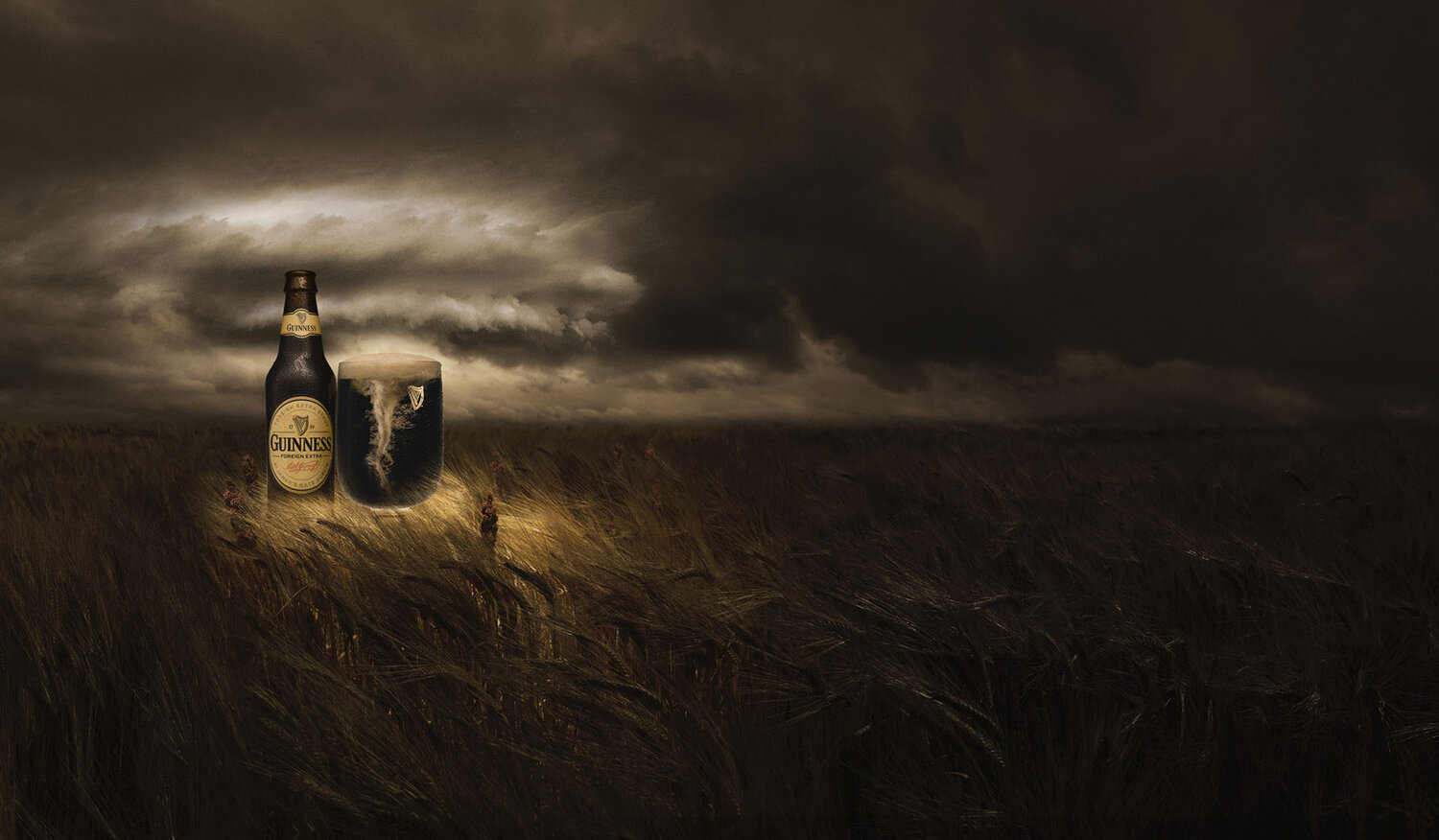
What do you think sets a successful production apart from others?
I think we all know when production is successful because there’s a buzz. High fives. Smiles. Everyone goes home happy (and exhausted!); clients, agencies, directors, photographers, crew, suppliers, location owners alike...
As an industry we are extremely hard working, adaptable and ultimately we always find a way. Meeting these challenges and creating something memorable is where the buzz comes from, which is no mean feat because it’s challenging. But that’s why we do it.
Given your years of experience, how do you see the role of a production company evolving as new technologies like AI and VR continue to develop?
That’s a great question because exciting technologies like these offer us new avenues of creativity, new ways of doing things. They will continue to shape our industry for the better, perhaps in a similar way that sound, colour or moving from analogue to digital have in the past.
Pre-production time is crucial to provide the best platform to unlock the full potential of AI and VR (we should include AR, VP, XR and anything I have missed too!) so the key is to engage the production company as early as possible. This will allow more ‘pre-vis’ and less ‘fix it in post’.
As ever, the role of production is to fully understand the creative requirements of each project, to find and work with the right crew, use the right equipment/technology and to manage the client’s expectations throughout. This means we can give peace of mind to our clients knowing that their ambitions will be realised.
One thing to add; strive to surround yourself with the best (particularly with anything new!), always listen, and keep learning!
You’ve worked on many high-profile projects, for a long list of brands like; Apple, Bentley, British Airways, Coca-Cola, Doritos, EDF, Guinness, HSBC, Ikea, Jaguar, L’Oréal, Microsoft, Nike, PwC, RBS, Sony, Vodafone, Walkers. Could you share your experience working on some of these campaigns, specifically how you helped bring the creative vision to life?
Firstly, I want to point out that the vision is always shaped in close collaboration with the client/agency creatives who conjure up these ideas, in this case the amazingly talented CD Fran Langdon. I have chosen to share two jobs we worked on because neither had ever been done before, so perhaps I had slightly more creative (and logistical) input than is usually afforded a producer.
Flame grilling a Doritos billboard:
One of the most exciting and unusual projects I worked on recently was a live PR stunt with a crowd and influencers so not only were there obvious health and safety challenges, we only had one take to get it. Following this, an overnight edit for online release the following morning. Doritos naturally wanted it to burn in a particular way; as slow as possible, from right to left with their logo burning last.
This was not something any of us had done before, even the SFX team we brought in from the show London’s Burning. So we chose to run a series of tests using various paper compositions and thicknesses, several burn accelerator/retarding compounds and different ways to hide gas/flame bars within the billboard frame. Then we scaled it up to make sure it would still work in a medium, and then largest format.
Walkers crop circle:
This was also a first, and the brief was clear. It needed to be very impressive with a wow factor. As big as possible, clearly visible from space, filmed from a drone and made in a potato field with a guarantee that no potatoes would be harmed!
Less clear was the true size this needed to be. Something massive would fulfil the creative parameters and client expectations. Something small would meet the physical challenge of creating it (mapping, cutting and removing the haulm) within the timeframe and budget we had. This balance was left to me to nut out.
There was a great deal of skepticism from virtually all the (tremendously helpful but not very optimistic) agricultural and horticultural experts. Nevertheless, it was big enough to be seen from space yet small enough to pull off. You know, about the size of a football pitch.
*no potatoes were harmed in this production (although many packets of Walkers crisps were devoured).
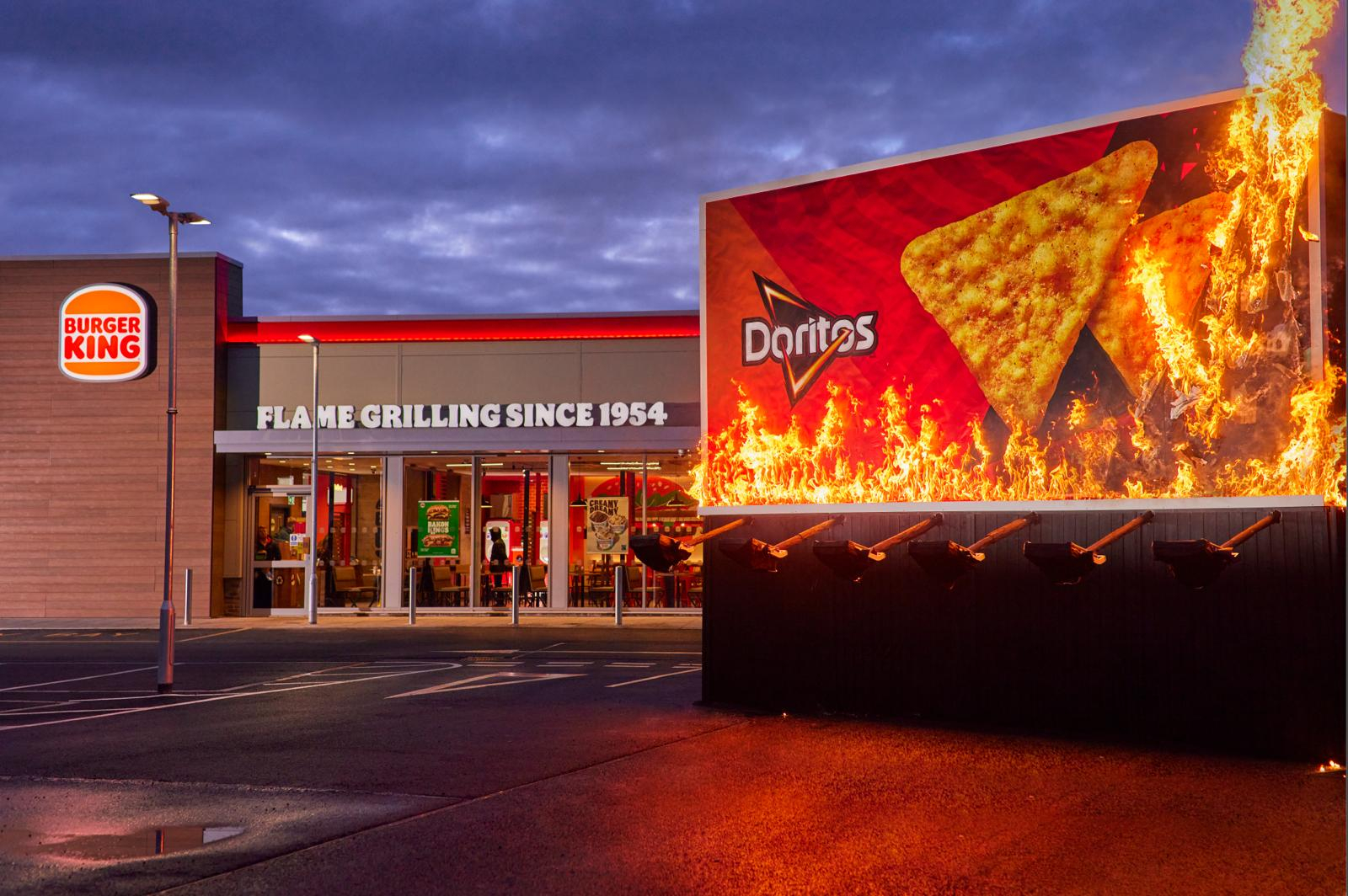
With the growing demand for international shoots, how important is it to have a well-established network of global production contacts?
100% Essential. Having solid relationships and getting reliable recommendations is one of the most important skills for any producer. It’s also one of the great benefits of Production Paradise.
You need to rely on your production partners to deliver and that means they must go the extra mile for you. I have always believed in that trust, value and respect for all my suppliers, big or small. Ultimately, they are often the ones who make you look good so I value them enormously.
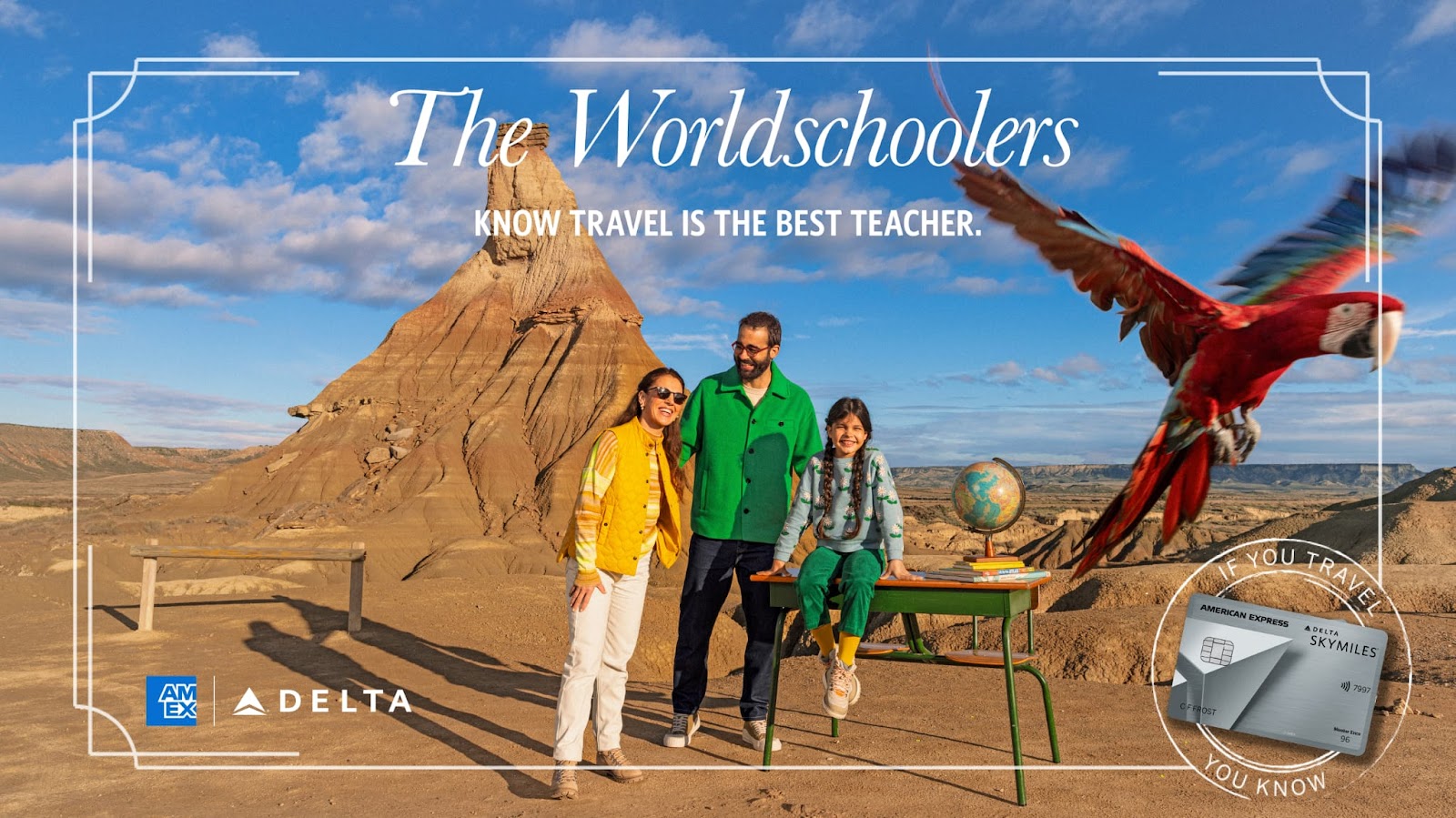
As a provider of production services, what do you think clients value most when choosing a production company or partner?
From my experience having trustworthy, reliable and open production partners is key, and my answer here echoes the last question.
So for me it is about being straight with people whether it is good or bad news (which reveals a great deal about who we are as people). Working as a team both up and downstream. Trusting, empowering and supporting your people. Avoiding the blame game. Paying people promptly.
I expect from my partners what I believe they expect from me and when this is in sync you know you are onto a good thing.
How do you ensure that production services remain efficient and cost-effective without compromising on quality?
My philosophy is simple: Our team is small by design. It not only allows us to be nimble, quality-driven and reliable, it also means we are uniquely positioned to focus on our client’s vision rather than our own bottom line.
How important is sustainability in production, and how do you approach incorporating eco-friendly practices into your work?
Sustainability is increasingly important, and we support all eco-friendly practices. Our sustainability policy is clear and we donate to a number of charities and organisations that promote positive change with an optional 1% sustainability mark up on each project.
I read Ecology at Edinburgh University and have always been passionate about the environment, especially the marine environment and our oceans. As a sailor (Atlantic crossing in 1999), diver (HSE scuba qualified), swimmer (swam Corryvreckan), and ex-water sports instructor, it’s no surprise that my choices of charity have a marine focus.
On a practical level, although it has a dubious acronym… MGROCRF (MR C FROG might be better?); we Measure, and use Green energy suppliers, Reduce emissions, Offset, Commit to zero, use Respected like minded companies, and use Feedback loops.
Looking back on your 10 years with Production Paradise, how has being part of this platform influenced your career and the success of your production services?
For the last 10 years it is the only place I have intentionally advertised and I intend to continue.
Your platform has allowed me to keep up to date on what is happening across the industry and my Production Paradise inbox allows me to see posts from clients, competitors and suppIiers sharing their stories/projects, highlighting some of the amazing work that they have delivered.
It is a great portal to showcase our industry, both in the UK and abroad and I value the relationship I have with you.
Thank you PP, for some great questions here, and of course for the platform you provide!
Luke’s story is a testament to the power of adaptability, collaboration, and a genuine love for the creative process. Whether he’s flame-grilling a billboard, coordinating shoots in remote castles, or embracing new technologies like AI and VR, Luke brings precision and heart to every project. As a long-time member of Production Paradise, he continues to build connections, elevate his craft, and help bring bold ideas to life. For anyone looking to understand the evolving world of production, Luke’s perspective is not only insightful — it’s inspiring. A big thank you to Luke for sharing his insights. Check out his work!

%20(2100%20x%20405%20px).png)
